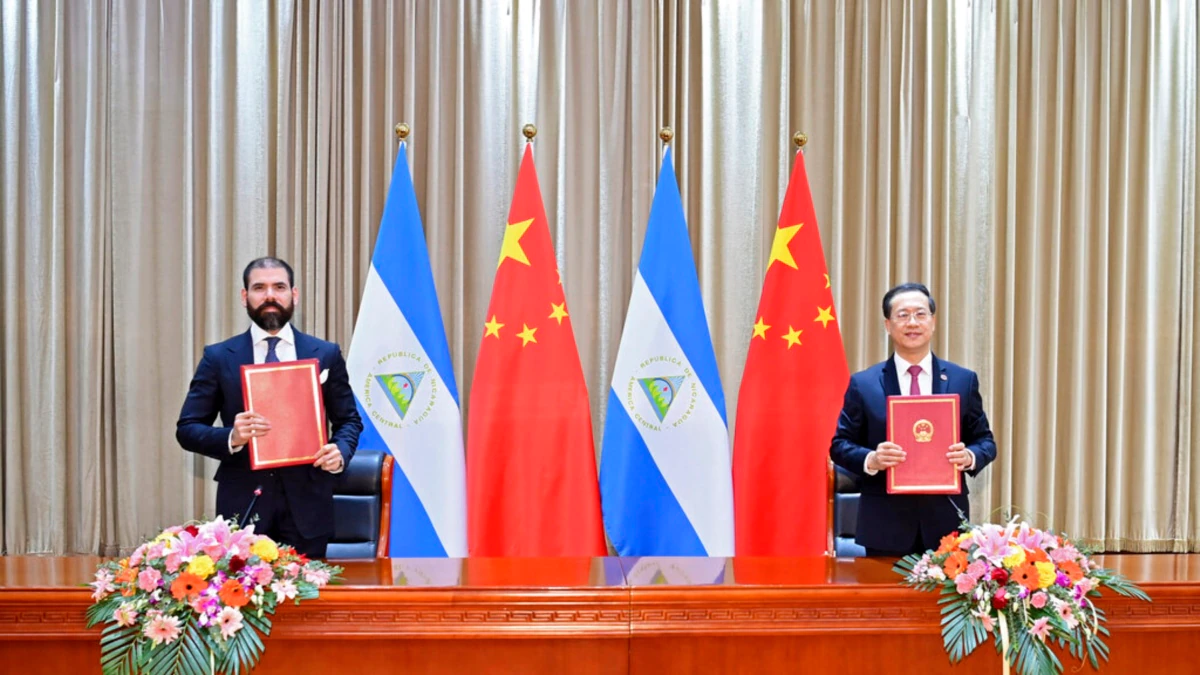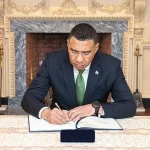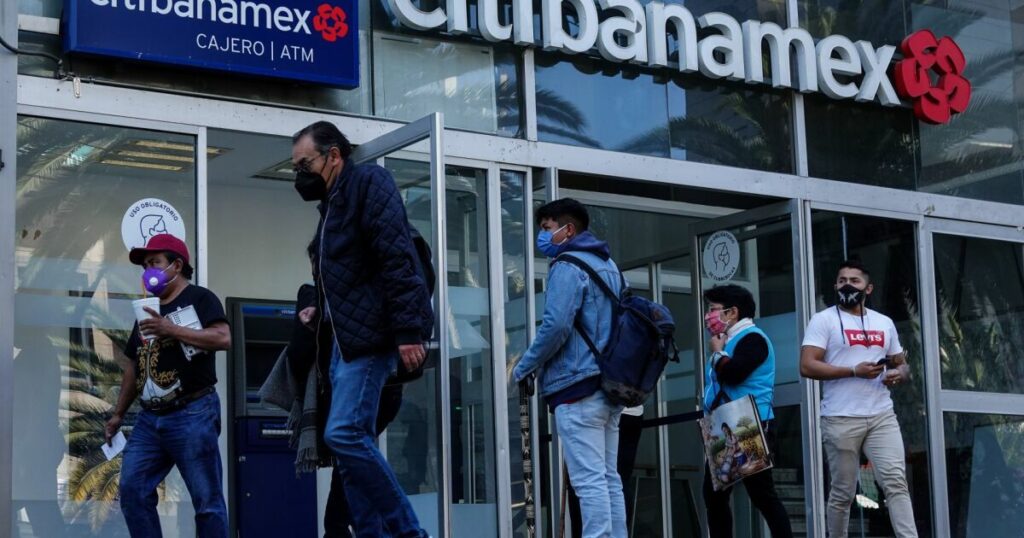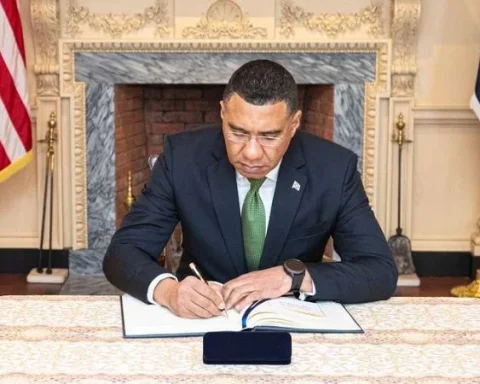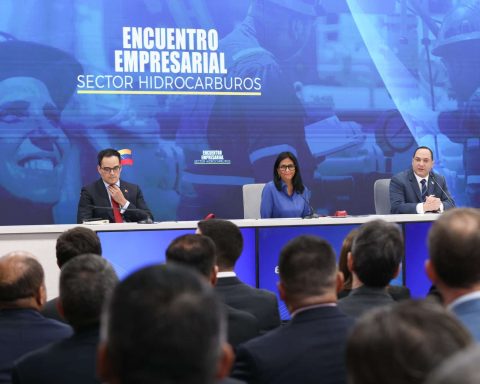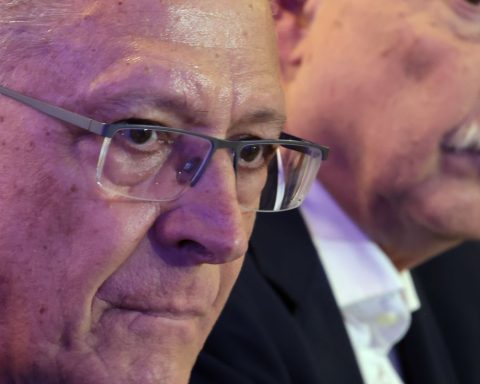Nicaragua explores new markets and seems to start with the Asian giant of China, its new ally with whom it is negotiate a free trade agreement (FTA) which intends to be signed no later than 2023.
According to experts consulted by the voice of america With this, the Nicaraguan president, Daniel Ortega, who has been in power for 15 years, far from improving the economy, seeks to mitigate the sanctions that the United States and the rest of the international community have applied to the president and his circle, whom they point to as violating human rights and undermining democracy.
But also, the experts maintain, Ortega seeks to “create a social illusion at its base in the face of the economic reality that exists” in the Central American country that is facing one of its worst political crises in the last 30 years.
According to data from the Central Bank of Nicaragua (BCN), the economy of the country – one of the poorest in the region – grew by nearly 10% in 2021, after three years of decline and massive migration, but analysts say that in part it is due to the significant increase in remittances.
In 2021 alone, remittances represented 16% more than the previous year, which represents 17% of Nicaragua’s gross domestic product.
Nicaraguan sociologist Oscar René Vargas, co-founder of the governing Sandinista Front, is today one of the voices most critical of Ortega. Vargas told the VOA that a new commercial agreement does not generate expectations and that rather the announcement of this seeks to calm the bases of the government that internally show social dissatisfaction.
“To transform a country, it is necessary to transform the productive structure of a country. What Ortega is doing is selling the illusion to the population that this treaty is a bridge to progress,” says Vargas.
Parsifal D’Sola, executive director of the Andrés Bello Foundation, specializing in Chinese issues in Latin America, assures that there are three free trade agreements with the Asian giant in the region; Peru, Chile and Costa Rica.
D’Sola maintains that although for certain, there are no studies where an evaluation is made either positive or negative as a result of the signing of these free trade agreements, everything indicates that not much has changed.
“Free trade agreements, although they are sold as a kind of panacea that will open the doors of the Chinese market, it does not turn out to be entirely true,” says the expert.
“And we see it in the case of Costa Rica, but the same is happening in the case of Peru and in the case of Chile, where the industries that have benefited are the traditional industries.”
In Costa Rica, a decade after the signing of the FTA with China, relations “have not been as commercially successful as we have wanted,” he said at the time to the VOA the then vice chancellor of that country, Christian Guillermet.
And that is reflected in the 2021 statistics that show that Costa Rican exports are still mostly the main destination in North America; followed by Central America, then Europe, and finally Asia.
Chinese political interest?
The experts also rule out any extraordinary interest of China with Managua given that “it is a small country and there is not much that China can do about it or in terms of its economic or political influence in the country.”
“We will undoubtedly see an increase in the participation of certain companies. I estimate that these companies will be mostly state-owned, however, the projects that characterized relations between China and many countries in the region in the 2000s and the past decade tend to be in the past,” says Parsifal. D’Sola.
He also shares that there is a learning curve for Chinese companies not to expose themselves so much in highly politically and economically unstable markets or countries.
“I say this more than anything because of the case of Venezuela, where the results of the participation of Chinese companies were catastrophic, there were no tangible results for any of the parties involved, and I believe that this has in part been a lesson learned by both the high authorities in Beijing such as banking and the state-owned company.”
The expert believes that the possibility of Managua replacing the United States with China as its main trading partner is somewhat difficult because “this has not happened in Latin America, also in several African countries, where all these macro infrastructure projects or these large loans that characterized the relationship [con China]They are practically in the past.
For his part, Benjamin Gedan, director of Wilson Centerbased in Washington, states that Nicaragua “is understandably anxious to diversify its economic relations” due to US sanctions and therefore seeks the Chinese economy.
Nicaragua sells about 60% of its exports to the United States, including nearly $2 billion a year in clothing, according to official figures. In this regard, Gedan considers that China would have little interest in replacing lost sales to the United States.
“The Ortega regime is missing out on an important global trend, the migration of factories from Asia to Latin America. Its free trade agreement with the United States would make it an obvious destination for these companies, but Ortega has scared away investors by ruthlessly cracking down on dissent,” Gedan tells the VOA.
“Trade negotiations with China may give the impression that Nicaragua is not totally isolated, but they will not reduce Nicaragua’s dependence on the US market or the economic damage of its disastrous leadership,” he concludes.
For its part, the Ortega government claims to be waiting for the possible free trade agreement and states that “it is the beginning of relations” with China.
At the moment China and Nicaragua have signed an “Early Harvest Agreement” which they say seeks to identify the products that will be exported to the Asian country with preferential tariffs.
Connect with the Voice of America! Subscribe to our channel Youtube and turn on notifications, or follow us on social media: Facebook, Twitter and Instagram
